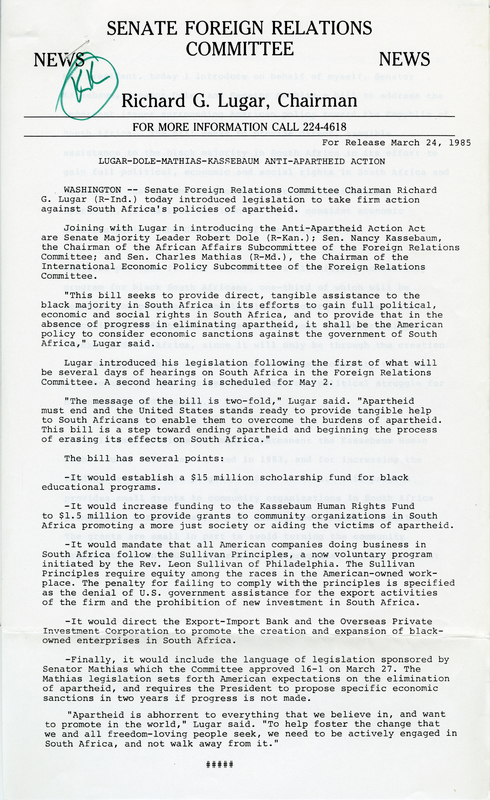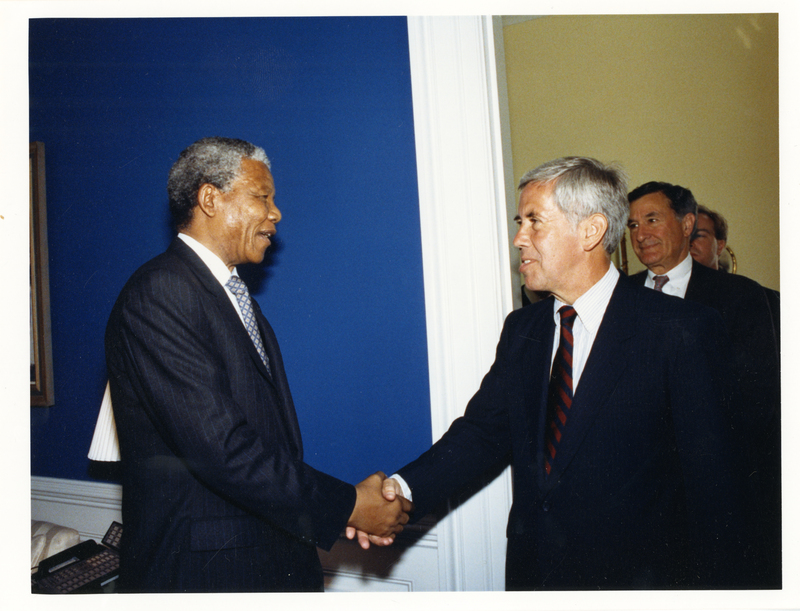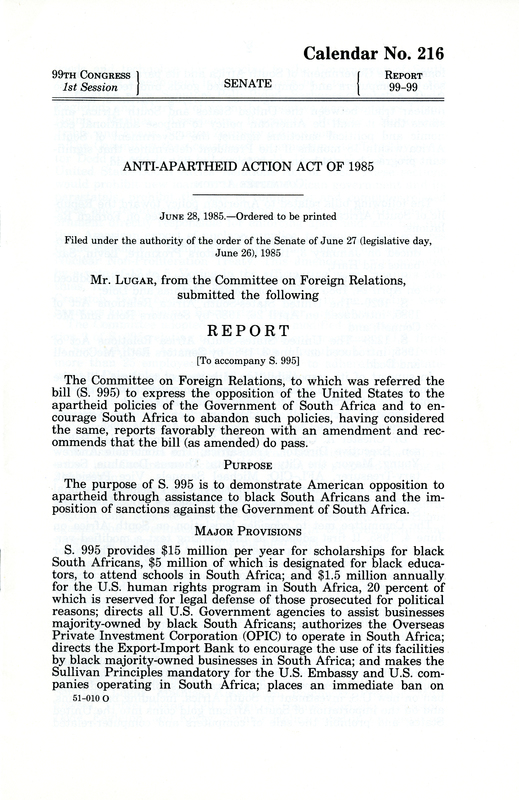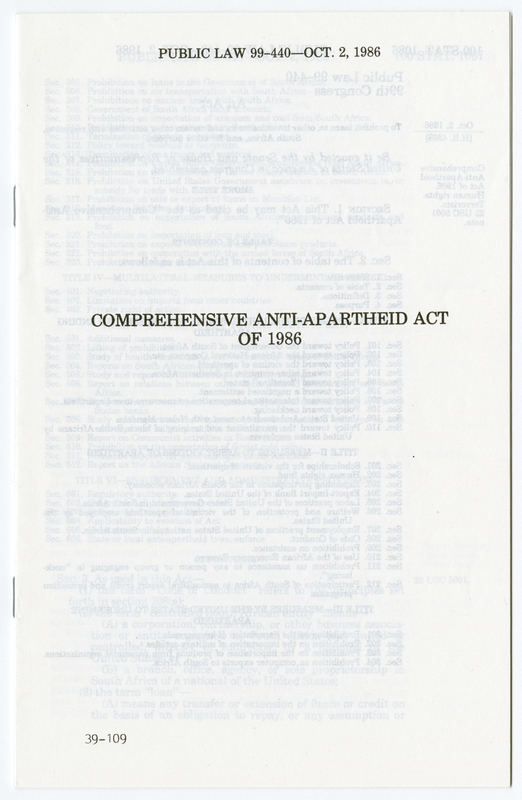South Africa: Against Apartheid
When Richard Lugar became the Chair of the Senate Committee on Foreign Relations in 1985, he saw it as an opportunity to effect democratic change in South Africa. The South African government was structured according to the system of apartheid, or institutionalized racial segregation and discrimination. By the mid-1980s, Lugar and other members of Congress felt that strong action was needed to express American condemnation of apartheid. With three other Republican senators, Lugar introduced the “Anti-Apartheid Action Act of 1985.” Among other points, the Act provided funds for the establishment of scholarships for black South Africans and for human rights programs in South Africa. It also called for an immediate ban on loans to the government of South Africa and on the sale of computers to government agencies conducting surveillance on black activists.

Senate Foreign Relations Committee, Press release, "Lugar-Dole-Mathias-Kassebaum Anti-Apartheid Action," March 24, 1985.
The Senate Foreign Relations Committee press release and attached documents shown here are from the files of Lugar’s Press Secretary. Stapled to the back of the press release are two sets of papers: the floor statement that Lugar delivered when introducing the bill and a draft typescript of the bill. Section 1 of the draft asserts that Congress finds that “the policy and practice of apartheid is repugnant to the moral and political views of democratic and free societies, and runs counter to United States policies to promote democratic governments throughout the world and respect for human rights.” The bill was indefinitely postponed due to the threat of veto, but was re-introduced and passed in 1986.
President Reagan condemned apartheid, but he rejected imposing direct sanctions on South Africa. When Senator Lugar introduced his sanctions bill in 1985, he knew he did not have enough votes to override Reagan’s threatened veto. In July 1986, Lugar introduced another bill that included the same sanctions as the previous year and introduced six new ones. It also provided several possible conditions that the government of South Africa needed to meet in order to have the sanctions lifted, one of which was the release of jailed black leader Nelson Mandela. The bill passed both houses of Congress but was vetoed by the President. Lugar successfully fought for an override of the President’s veto, and the bill passed into law on October 2, 1986. In 1991, Mandela wrote to Lugar: “Your valiant fight against apartheid has won you a place of honour in the hearts of millions of our people and we wish that you continue until apartheid is completely dismantled.”




